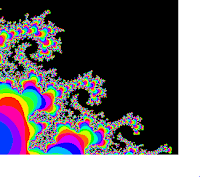Revalidating the Quadrivium...
Sabtu, 29 Oktober 2011
0
komentar
"The rector has decided that our beloved Quadrivium is no longer fit for purpose and should be 'revalidated'. I'm sure that Master Boethius wouldn't have sanctioned any of this nonsense! I can't imagine how our Rector reached his conclusion: last year's results in arithmetic and geometry were particularly good - Brother Keynes's project on the "Economics of the crusades" was particularly well received - especially in our overseas Córdoba campus, where Dr. Scotus did such a grand job. There are of course problems.. mostly in music. Dr Solfa gets so carried away.. and there have been complaints which are getting increasingly difficult to bat away (particularly from our beloved sisters in the convent next door!). And then, of course, there are the astronomers! Just making trouble, if you ask me.. and Rome is getting twitchy.
But it's not only the astronomers with some revolutionary zeal about them.. Our rector, Professor Gove, has a vision too. But I can only wonder that in his vision the astronomers are not in harmony.. nor the musicians of Dr Solfa! There's no doubt he worries about our sacred University and the welfare of our Scholars. I wish he'd consider more deeply the significance of our contribution to science and knowledge... but alas my prayers on that count go unanswered. Of course, someone's got to pay for all of this, and our Rector is anxious to make sure that we don't find ourselves in an indefensible position!
So the Quadrivium is going to be 'revalidated' to make it more "attractive and accessible to students" (hopefully to stop them ransacking the town so much... although that has always been a big 'draw' for students of the University, given their immunity from prosecution!). Of course, the other aim is to iron-out the problems of the musicians and the astronomers. Everyone knows the result of this will be the removal of Dr. Solfa and most of the astronomers who have had rather too much contact with radical ideas from the continent. In the old days, we would simply have arranged some sort of 'purge'.. but that's considered old hat now. Yes - revalidation is the only way to go, although it pains me to think of the hours wasted by scribes who once poured over the works of Aristotle, and now find themselves designing 'learning outcomes'... I hope that they at least have the wit to add some exciting Marginalia to keep us amused!
Apparently, the plan is to make the Quadrivium more "relevant to the practical needs of everyday life". Peter Lombard's sentences - poured over and reproduced for many years by students - are to be re-written to include relevant information about pig farming, crop rotation and the effective treatment of peasants. The doctrine of "immitation" is to be maintained and enforced as a secure means to learning. My heart sinks at the thought of it.. but maybe the students will like it. On the other hand (and perhaps paradoxically), students are also going to be required to keep a 'reflective learning journal' - no doubt not only to record their thoughts on their new sentences, but also their rather less edifying experiences in the town! I can't wait to see that! There are also some interesting ideas on new subjects: Brother Rabelais apparently has a recipe for a new course on "games", for which he has produced an enticing list including "tickle-me-prickle-me", "lusty brown boy" and "Hide the farthing in your bum" all of which look as if they could be winners with students and staff alike!
There will also be some changes in personnel: the scribes are going to be redeployed in the light of new technology (these blasted printing machines!), being required to teach rather than write (they are of course cheaper than our doctors, and so I can see this is an attractive option for the Rector!)
So farewell music, farewell astronomy... welcome pig farming and crop rotation! Will we miss music and astronomy when it is gone? I have to confess, it does rather feel like the end of civilisation at the moment. But maybe a few more pints of ale will sort that out!"
Baca Selengkapnya ....





























































.jpg)
